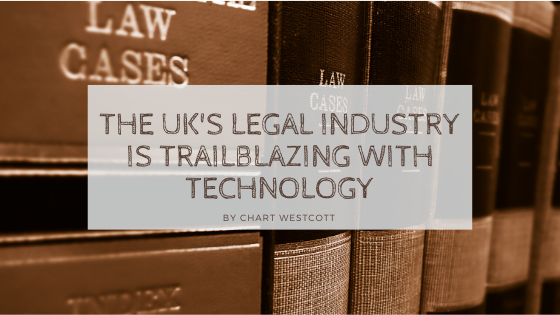The countries that make up the United Kingdom are no stranger to enjoying the spoils of modern-day technology. They are on the cutting-edge of the industry just as much as any other first-world nation. The field of law, perhaps a tad behind, is catching up quickly and it shows no immediate signs of slowing down anytime soon.
The concept of artificial intelligence being used as a business tool became mainstream around 2008 with the development of speech recognition in phones. People in the legal industry are now at the point where they can use speech-to-text directly into their devices to schedule events, set reminders, and even take dictation. AI has also provided a way to do on-the-spot fact-checking instead of having to make time-consuming trips to the library. There are specialized Intranets that are solely for those in the legal profession, such as LexisNexis.
Much the same way we disentangled ourselves from corded telephones to a more portable device, today’s person is always on the go, not necessarily sitting in front of their computer. This means that mobile apps are going to have to provide the same ease of use and functionality as their desktop counterparts.
No matter what you are doing, your data needs to be kept secure, regardless of whether it contains personal or business information. Storing details off-site in a cloud server protects your files from any unwarranted local attacks. There is no filing cabinet or folder for a potential criminal to access. Even if your individual electronic device is damaged, there is no loss of data integrity because nothing is stored locally.
Internally, many law firms are also employing performance trackers to monitor specific employees as well as whole departments. They can then use that information to determine where the best fit may be for each team member. The advancements in efficiency alone save companies millions of dollars each year.
One of the most recent developments in technology is the concept of performance analytics. This is practically like seeing into the future. Organizations gather up previous data, find patterns within it, and then predict future behaviors based on those patterns. Retail stores are already doing it in order to send out customized email marketing campaigns, with each one distinctly custom-tailored for each shopper. Prognostic analytics is another tool that is being used to speculate on an unforeseen future event based on normal, expected outcomes.
